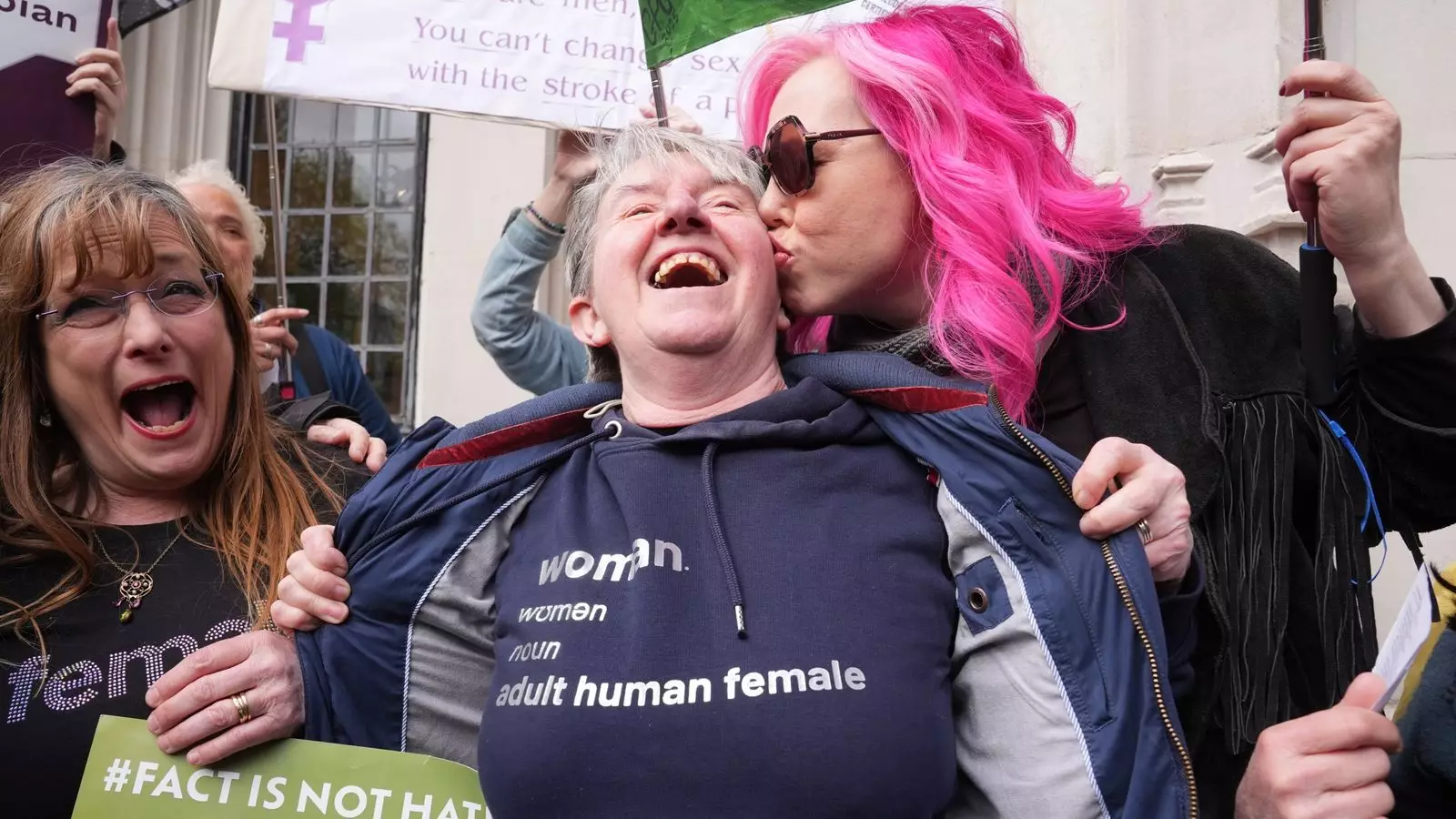The ongoing discourse surrounding gender identity has become a battleground for rights, ideologies, and deeply held beliefs in the UK and beyond. What was once a conversation about inclusivity has devolved into a high-stakes legal struggle that threatens to polarize the nation irreparably. The recent unanimous ruling by five judges in the UK’s highest civil court has laid bare the schism that exists between biological terms and social definitions, further complicating an already contentious issue. Their conclusion, which posits that a woman is defined by biological sex, serves as a damning verdict that dismisses the rights and identities of transgender individuals who hold gender recognition certificates.
The Legal Backdrop and Its Implications
This landmark decision was predicated upon two crucial legislative frameworks: the Equality Act of 2010 and the Gender Recognition Act of 2004. For over twenty years, those with gender recognition certificates believed that their status altered their legal gender for all intents and purposes. This recent ruling effectively strips away that assurance, asserting that this legal identity does not translate into a societal one. The Equality Act, designed to provide safeguards against discrimination, now offers weak protection, allowing the exclusion of trans individuals from women-only spaces under specific circumstances. The court’s ruling stands as an unwavering twist of the legislative knife into the fabric of trans rights that had already been fraying under scrutiny.
A Fight Over More Than Just Spaces
Behind these legalities lies a stark reality—this isn’t merely about definitions and laws; it’s about people’s lives and identities. The sentiment expressed by a trans woman who described the ruling as an “attack” on her rights encapsulates the emotional toll of this legal battle. For many trans individuals, their identity is not merely a social construct, but an intrinsic part of who they are, impacting their daily lives, mental health, and well-being. The state’s insistence on a biologically-driven definition undermines the lived experiences of these individuals and calls into question their authenticity and worth.
The ruling sends shockwaves throughout the trans community while simultaneously emboldening sections of society that perceive the decision as a triumph. Groups like For Women Scotland seized the moment, celebrating what they term a “victory” that grants clarity on gender-related issues. Yet, their win serves as a double-edged sword, emphasizing the division between those who advocate for biological determinism and those advocating for inclusivity and the recognition of gender identity as a spectrum.
The Political Calculus and the Next Steps
The political landscape has been equally influenced by this ruling. The statements from various political figures reveal an attempt to navigate the murky waters of public sentiment. Sir Keir Starmer’s comment on fostering “confidence” in single-sex spaces was likely calculated to appease a diverse range of constituents, while John Swinney’s pragmatic acceptance of the ruling underscores his desire to shift away from the complexities that have mired Scottish politics of late. One can’t help but wonder if these political maneuvers are genuine or merely self-serving strategies to sidestep a discourse fraught with risk and outrage.
With a Holyrood election on the horizon, the urgency of the matter cannot be overstated. The SNP government’s previous attempts to make gender recognition more accessible have been stymied, and now this ruling may extinguish any lingering hope of revisiting those reforms. Swinney’s reluctance to engage with the topic further indicates that political caution is taking precedence over moral clarity—a troubling trend in a time when strong leadership is essential.
The Chilling Effect on Advocacy
As the dust settles on this unprecedented ruling, it’s evident that the ramifications extend well beyond the courtroom. Advocates for trans rights may now find themselves navigating an even more hostile environment, where their existence is not only questioned but legally discounted. Rather than progressing toward a more inclusive society, this ruling risks backtracking vital rights, fueling a climate that emboldens discrimination and fear.
In a world where identity is increasingly being framed as a political liability, the question remains: how long will society allow legal definitions to dictate the intrinsic right of individuals to exist as they authentically are? With every syllable of legal jargon that praises biological definitions, the lived realities of countless individuals fade further into the background—a haunting reminder of the walls we continue to build.


Leave a Reply